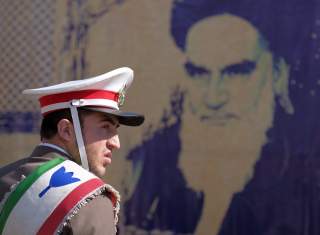Epistemology, Rhetoric, and the Iranian Protests
Certainly there is a role for declaring strong support for the right of Iranians or any other people to express their grievances peacefully, and for condemning any use of force against such expression. The line between such declarations and a posture that gives credibility to the Iranian regime’s accusations about foreign interference is admittedly thin. But the line exists, and Americans do no favors to the Iranian people by crossing it.
Finally, as the events in Iranian streets have gotten regime change juices flowing again back in the United States, those feeling the flow need to be careful what they wish for. They should bear in mind how hardliners apparently were in the forefront of getting the current protests going. They also should think about the likelihood that the Iranian politics and policies that would follow any harsh crackdown on protesters—which is still one of the possible next chapters in the current events—would likely be at least as unfavorable to U.S. interests as what Tehran exhibits now. In other words, change can be a change for the worse rather than for the better.
Also worthy of reflection is the absence of Green Movement-style leadership of the current protests, and more broadly of a credible alternative leadership for the nation that would be better than what Rouhani represents. The paucity of attractive alternatives for Americans to latch on to is demonstrated by how many otherwise sane U.S. political figures have latched on to the terrorist-group-cum-cult known as the Mujahedin-e Khalq, which has little support inside Iran.
Even if a more attractive leadership were in the wings, the history of revolutions worldwide shows how frequently a moderate figure becomes an Alexander Kerensky, who gives way to more extreme and ruthless elements who hold power much longer. Iran itself has had its Kerenskys, in the persons of Mehdi Bazargan and Abolhassan Bani-Sadr, briefly-tenured leaders after the fall of the shah who lost out to the forces of Ayatollah Ruhollah Khomeini.
If all this were not enough to give pause, there are more recent lessons in Iraq, where U.S.-fomented regime change boosted the influence of the Islamic Republic of Iran, and Libya, which is still divided and chaotic.
Image: An Iranian soldier stands guard in front of a picture of Iran's late leader Ayatollah Ruhollah Khomeini during the anniversary ceremony of Iran's Islamic Revolution in Behesht Zahra cemetery, south of Tehran, February 1, 2016. REUTERS/Raheb Homavandi/TIMA

